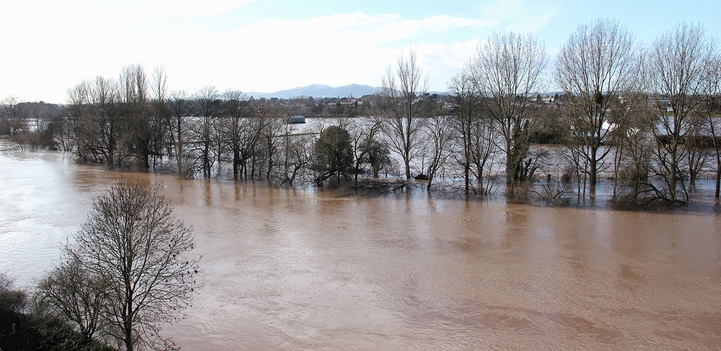
Planned responses
Ministers of all denominations are used to dealing with the everyday emergencies that affect people's lives. But some events are out of the ordinary - like terrorist attacks, plane, train and massive motorway crashes, and natural disasters like floods.
The emergency services and local authorities have developed plans for co-ordinated responses to these "major incidents". They are very different but there are some common factors: the lives of a large number of people are disrupted and the normal local service providers - fire, police, ambulance, hospitals, mortuaries, social services - may not have adequate resources for the number of casualties, deaths or displaced people involved and therefore have to call in resources from neighbouring areas.
Although no disaster will fit neatly into the mould of any plan, it is important that the response is planned for, irrespective of the incident.
Crisis Support Teams in Dudley and Worcestershire
Dudley Metropolitan Borough Council and Worcestershire County Council operate Crisis Support Teams. Qualified volunteers from recognised organisations, including clergy, Readers and ALMs in the Diocese of Worcester, can offer their services to be recruited and trained as members of these teams.
One of the Diocesan Mission Development Officers will circulate requests for volunteers in the appropriate local authority area when the Crisis Support teams are having recruitment drives.
In Dudley, the current Crisis Support Team link is through Sarah Hill, their Contingency and Disaster Management Officer, sarah.j.hill@dudley.gov.uk. For Worcestershire, the team can be contacted at emergencyplanningstaff@worcestershire.gov.uk.
Volunteers who have been recognised and trained as members of the Crisis Support Network need to be ready to be called out and deployed by the respective local authority and are insured through them while responding as requested, and acting as instructed under the authority of the Local Authority.
In the event of a Major Incident
If a major incident occurs, then only those organisations (including the Crisis Support Team) who are recognised partners with the local authority will normally be admitted to the survivor and family reception centres.
Ordained and lay ministers and Churchwardens, other than volunteers who are part of the Crisis Support Team, are encouraged to consider how to make their parish’s buildings, and their support available in the first instance to the wider community. There will often be many people deeply concerned by what has happened, even while they and their families may not be immediately affected or involved, and churches may be one place among many where they can come together to share those concerns, find support, and offer prayer.
There will also be a significant period of follow-up, when the front-line responses have withdrawn, or been dialled back. At this time the church can provide a rich resource to encourage the resilience of the community in the aftermath of the incident.
The long term response
After the immediate response, clergy may be involved in pastoral care, spiritual counsel, and planning and conducting memorial services. Some individuals affected by the disaster may need specific help for post-traumatic stress, and clergy should know to whom they can be referred for help. Some major emergencies call for very long term practical local care for displaced people. Dudley Borough, Worcestershire County and the District Councils have access to a range of resources which clergy may request help to access through local authority contacts and, in particular, the emergency planning officers.
Clergy and licensed Lay Ministers should not engage in the delivery of professional counselling, even if they have the requisite training. While they themselves might wish to avail themselves of the Diocesan Counselling Service that is not a service that can be offered to the wider community.
When operating normally is difficult
All denominations need to plan how best to keep going and offer appropriate services when a major emergency affects a large number of people across the region or otherwise makes it difficult to operate normally.
In that event the Diocesan Bishop (or if uncontactable, Suffragan or an Archdeacon) in collaboration with the Diocesan Secretary (or Assistant Diocesan Secretary) and Diocesan Communications Officer will liaise as to the best use of diocesan resources in those circumstances. Where possible liaison will be maintained with the respective rural dean(s).
Media relations
There could be a huge influx of media representatives when a disaster happens. Initial co-ordination of the media is usually handled by the police who will provide a media liaison officer. Media requests should be channelled through the officer to avoid contradictory messages, to protect confidential information and to prevent unnecessary distress for relatives.
We have a Communications Officer in the Diocese of Worcester who can provide a link for clergy, lay ministers and churches with the media liaison officer, and advice for any ministers, lay and ordained who are approached by the press.
Who to contact
Local Authority Emergency Planning Officers
- Dudley MBC: 01384 817080
- Worcestershire CC: 01905 766171
The contents on this page was formerly section A16 of the Diocesan Compendium.